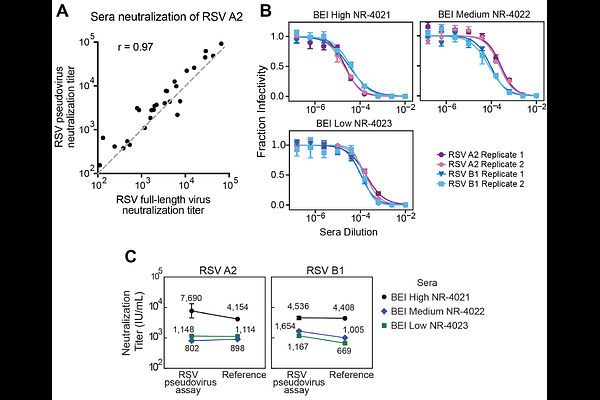RSV F evolution escapes some monoclonal antibodies but does not strongly erode neutralization by human polyclonal sera

RSV F evolution escapes some monoclonal antibodies but does not strongly erode neutralization by human polyclonal sera
Simonich, C. A.; McMahon, T. A.; Ju, X.; Yu, T. C.; Brunette, N.; Stevens-Ayers, T.; Boeckh, M. J.; King, N. P.; Greninger, A. L.; Bloom, J. D.
AbstractVaccines and monoclonal antibodies targeting the respiratory syncytial virus (RSV) fusion protein (F) have recently begun to be widely used to protect infants and high-risk adults. Some other viral proteins evolve to erode polyclonal antibody neutralization and escape individual monoclonal antibodies. However, little is known about how RSV F evolution affects antibodies. Here we develop an experimental system for measuring neutralization titers against RSV F using pseudotyped lentiviral particles. This system is easily adaptable to evaluate neutralization of relevant clinical strains. We apply this system to demonstrate that natural evolution of RSV F leads to escape from some monoclonal antibodies, but at most modestly affects neutralization by polyclonal serum antibodies. Overall, our work sheds light on RSV antigenic evolution and describes a tool to measure the ability of antibodies and sera to neutralize contemporary RSV strains.